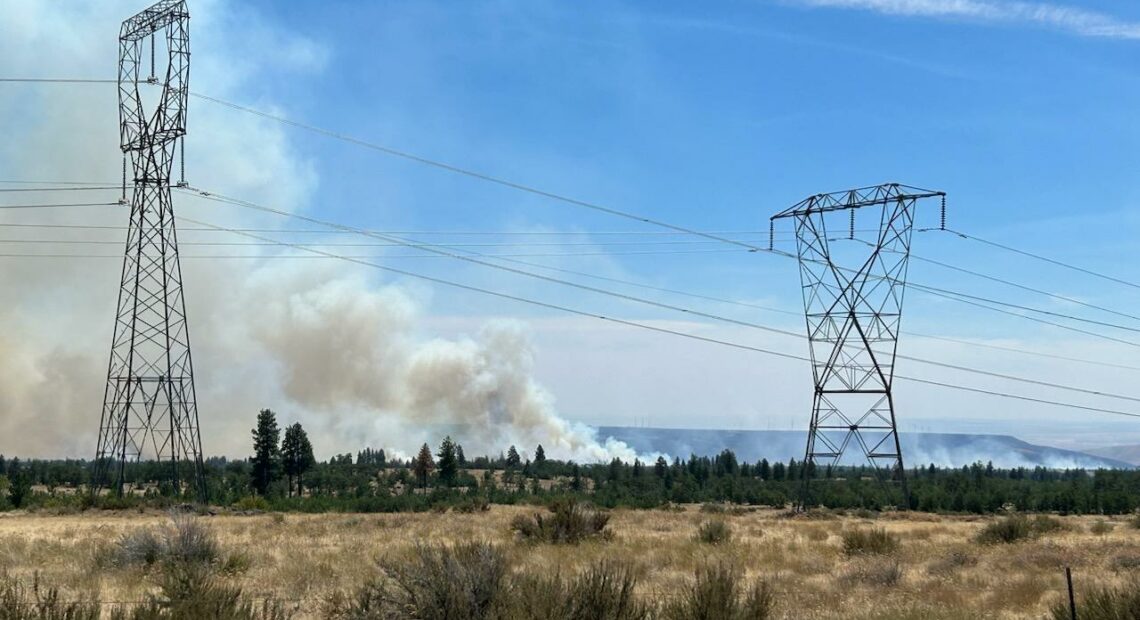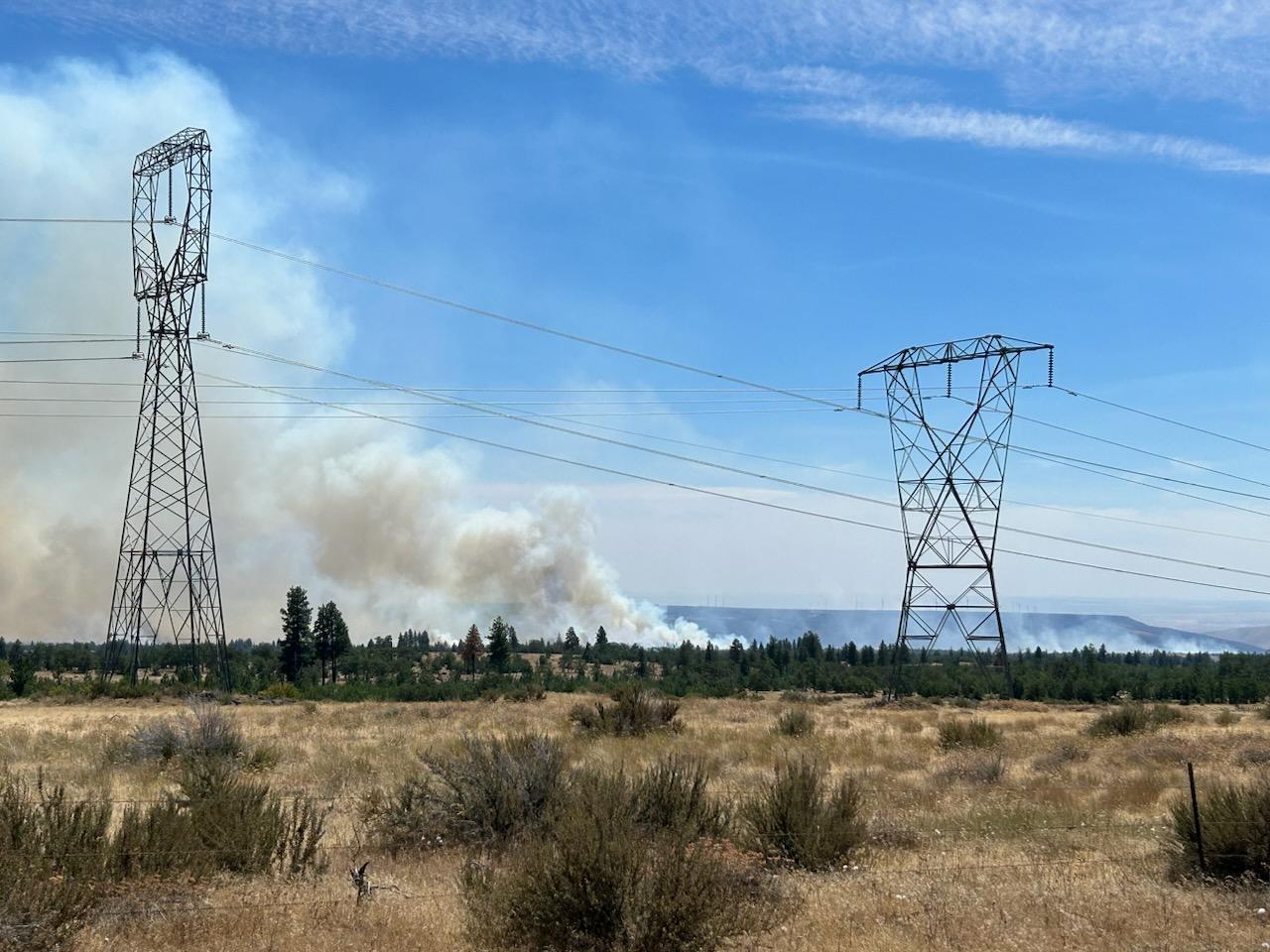
Crews keep Newell Road Fire from reaching solar farm, landfill
Read
A fire in south-central Washington has threatened renewable energy projects, livestock and wildlife, and a major landfill for the state.
The Newell Road Fire ignited on Friday afternoon, starting off small and quickly burning a path through grasses and shrubs, overrun with cheatgrass. By Sunday, the high temperatures and winds helped flames engulf more than 50,000 acres – what fire spokesperson Allen Lebovitz called ‘exceptional growth.’
“Add to that some really difficult terrain to work in, very steep in places and so not able to really put firefighters on the ground and a lot of those locations meant for just absolutely explosive fire growth,” Lebovitz said.
Level 1, 2 and 3 evacuations are still in place – get ready, get set and go. Check with Klickitat County Emergency Management for the most updated evacuation information.
“The sheriff’s department is going door-to-door to let people know about the situation as it’s necessary,” Lebovitz said.
A Newell Road Fire community meeting is planned for 6 p.m. Tuesday. You can attend via zoom or in person at Goldendale Middle School, 520 E. Collins St., Goldendale, Wash.
There is still a red flag warning with 40 mile-per-hour gusts predicted Monday. The eastern side of the fire appears to be relatively under control, Lebovitz said, with crews pivoting to the western side of the fire.
“Crews are working all night to build containment between the fire and the towns of Cleveland and Bickleton to make sure that they stayed safe, and from what I’m hearing from the line: so far, so good,” he said.
Local firefighters and landowners quickly jumped on the flames to protect property and keep the fire from reaching Washington’s largest solar farm and the Roosevelt Regional Landfill.
“A number of folks that are farmers or work in construction trades were able to deploy some of their own equipment,” he said.
The fire has burned underneath wind turbines – but Lebovitz said they are naturally resistant to the flames.
As the fire grows, crews are working to transport cattle away from the approaching flames. Northwest of the fire, crews are keeping an eye on important shrub-steppe habitat, Lebovitz said, including state endangered sage grouse.
















